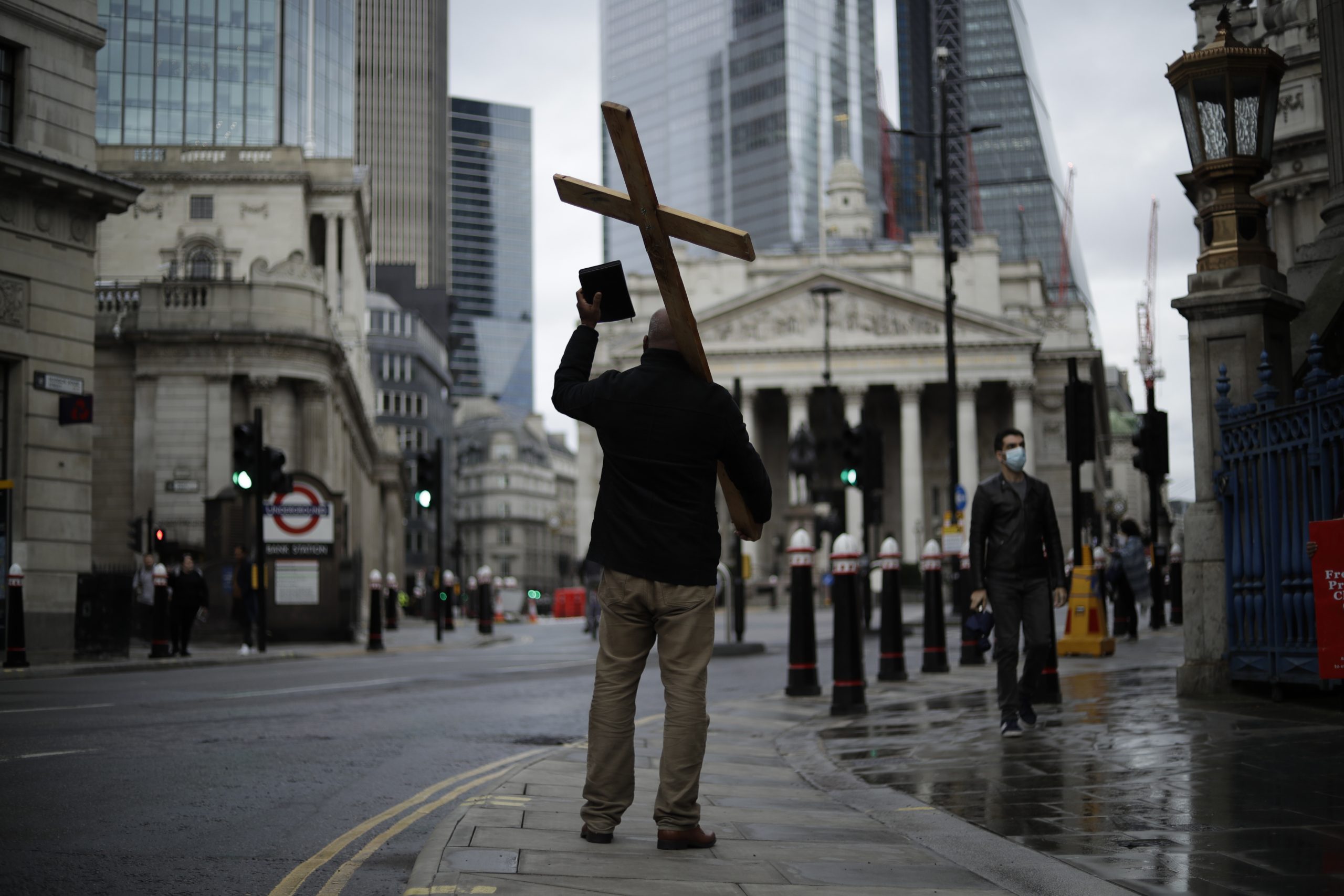For the first time ever, Christians constitute less than half the population of England and Wales.
The remarkable turnaround marks the first time the inhabitants of what is now England and Wales are minority Christian since their conversion from paganism in the seventh century. Those reporting no religion grew by a huge number since the last census in 2011, going from 25.2% to 37.2%. Christians plummeted from 59.3% in 2011 to 46.2%. In Wales specifically, those professing no religion, at 46.5%, now outnumber Christians, at 43.6%.
CAMBRIDGE PROFESSOR SAYS IT’S ‘LEGITIMATE’ TO BELIEVE JESUS HAD A ‘TRANS BODY’
We’ve released new #Census2021 data on religion in England and Wales.
46.2% said they were “Christian” – less than half of the population for the first time.
This was a decrease from 59.3% in 2011, but still the most common response.
➡️ https://t.co/Nv6VDkSO9i pic.twitter.com/HtoYJl7jkn
— Office for National Statistics (ONS) (@ONS) November 29, 2022
Other minority religions, such as Islam, Hinduism, and Buddhism, grew somewhat, with the largest increase being from Muslims, going from 4.9% to 6.5%. Buddhists now slightly outnumber Jews in the country, with both being around 0.5% of the population. Perhaps reflecting the changing religious landscape, the United Kingdom welcomed Rishi Sunak as its first Hindu prime minister, the first of a faith other than Christianity or irreligion.

The overall decline in Christianity is in contrast to the reality that the United Kingdom is still legally Christian, with the state Church of England holding a privileged status. In light of the recent census, atheist groups have increased their calls for the stripping of privileges from the Church of England. Andrew Copson, the chief executive of Humanists U.K., told the Guardian that the privileged status of the Anglican Church is “unfair and undemocratic — and looking increasingly absurd and unsustainable.”
The reasons for the decline in Christianity in the country vary but are mainly pinned down to the failure, or general unwillingness, of the older generation to pass their faith along to their children and the rapid aging of the population.
“Baby boomers lost their religion in the 1960s and raised their millennial children to be nonreligious. That’s why the number ticking ‘Christian’ on the census has dropped as older people die out and younger people select the category of ‘nonreligion,’” University of London professor Abby Day told the Guardian.
Despite the bleak picture, the Archbishop of York, Stephen Cottrell, has a hopeful vision.
“It’s not a great surprise that the census shows fewer people in this country identifying as Christian than in the past, but it still throws down a challenge to us not only to trust that God will build his kingdom on Earth but also to play our part in making Christ known,” he told the Washington Post.
CLICK HERE FOR MORE FROM THE WASHINGTON EXAMINER
The findings on religion were gathered from the 2021 census from the Office for National Statistics. The religious question was voluntary, and 6% declined to answer.
